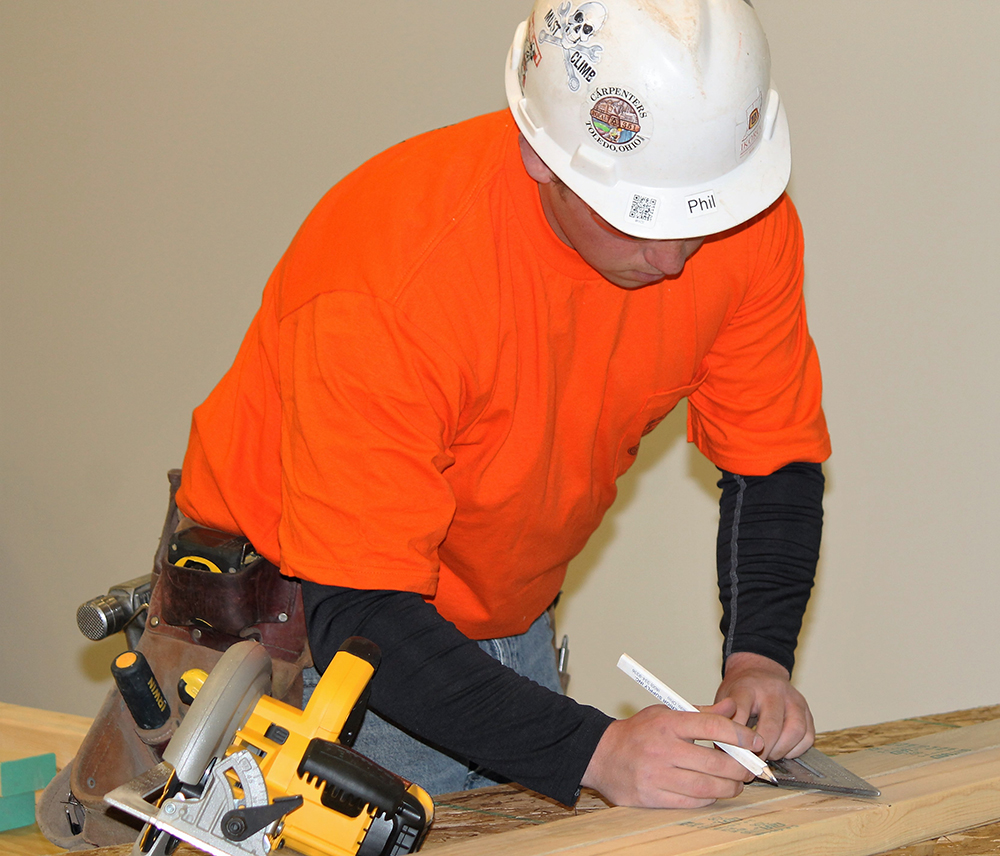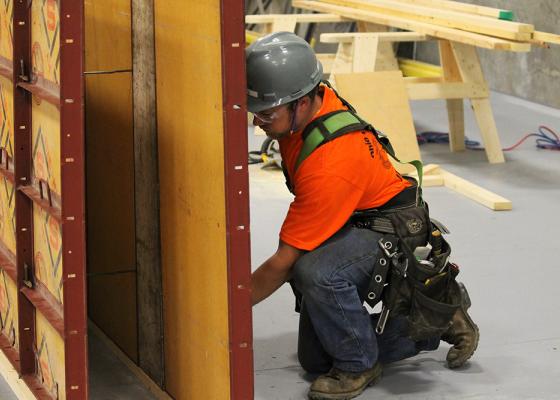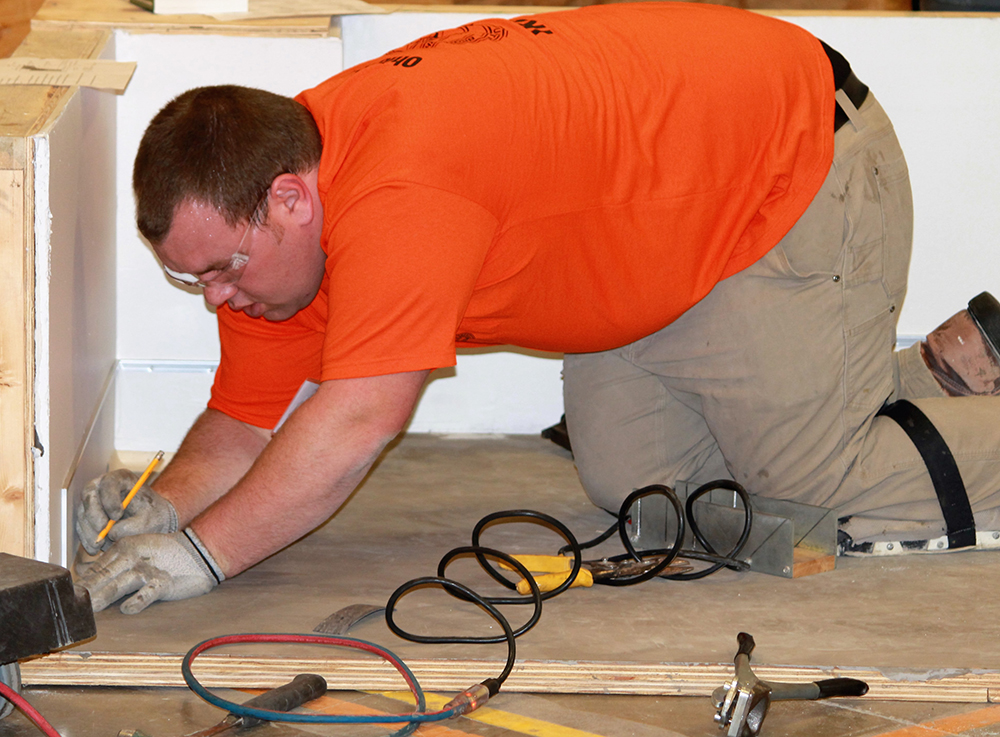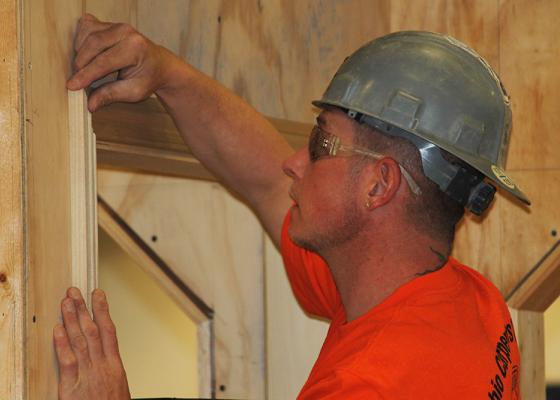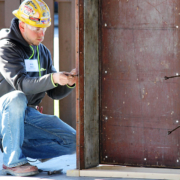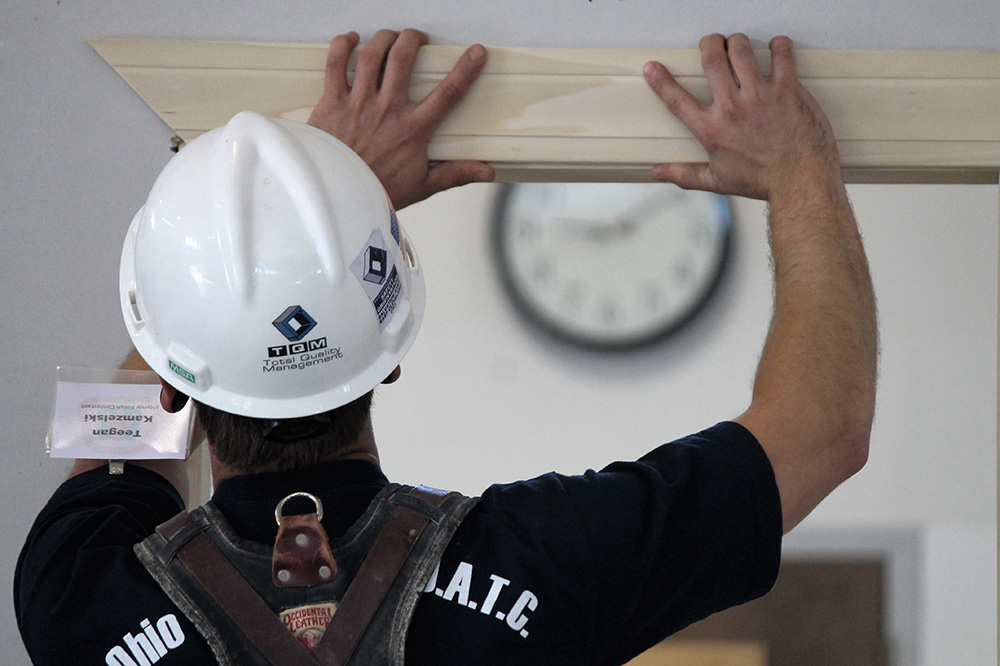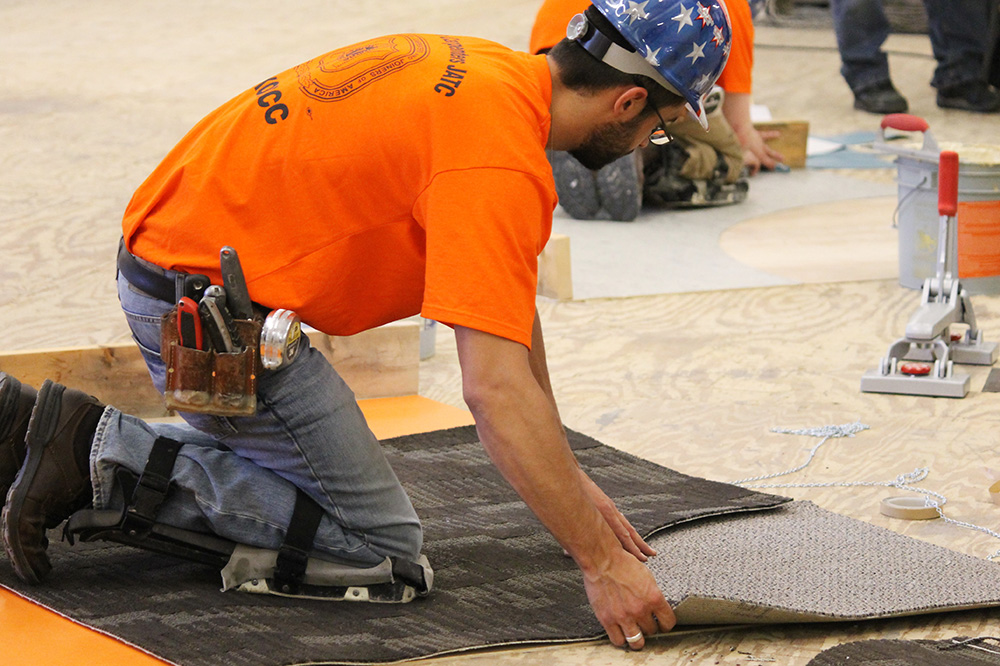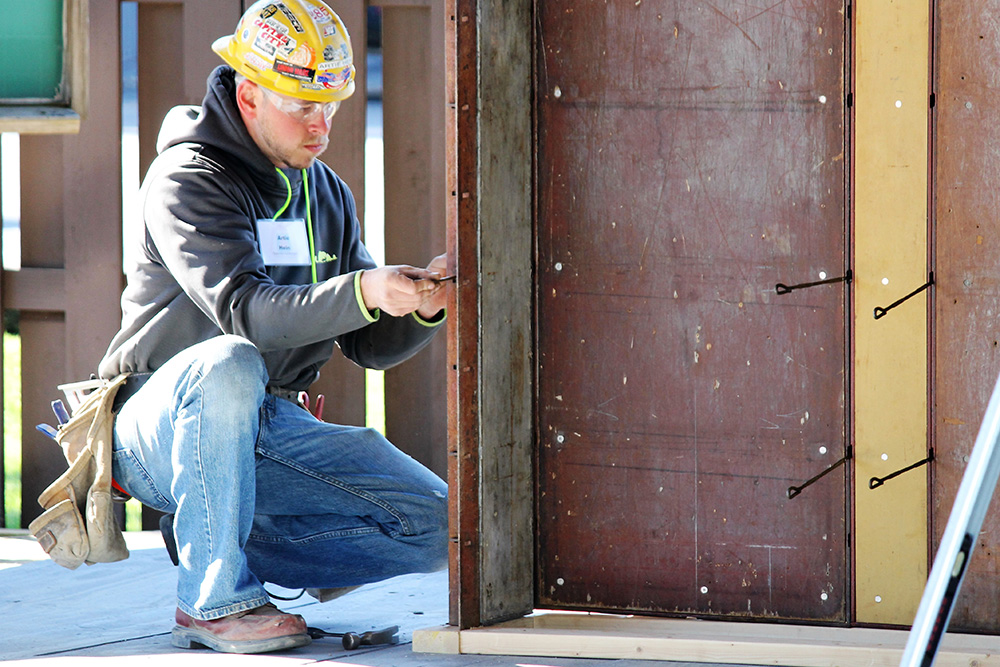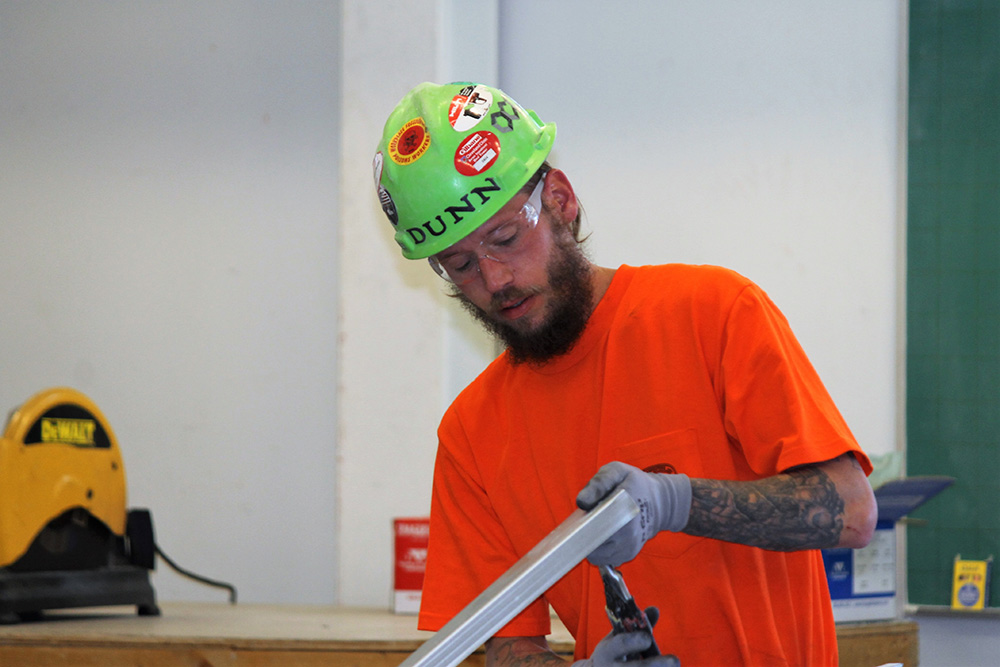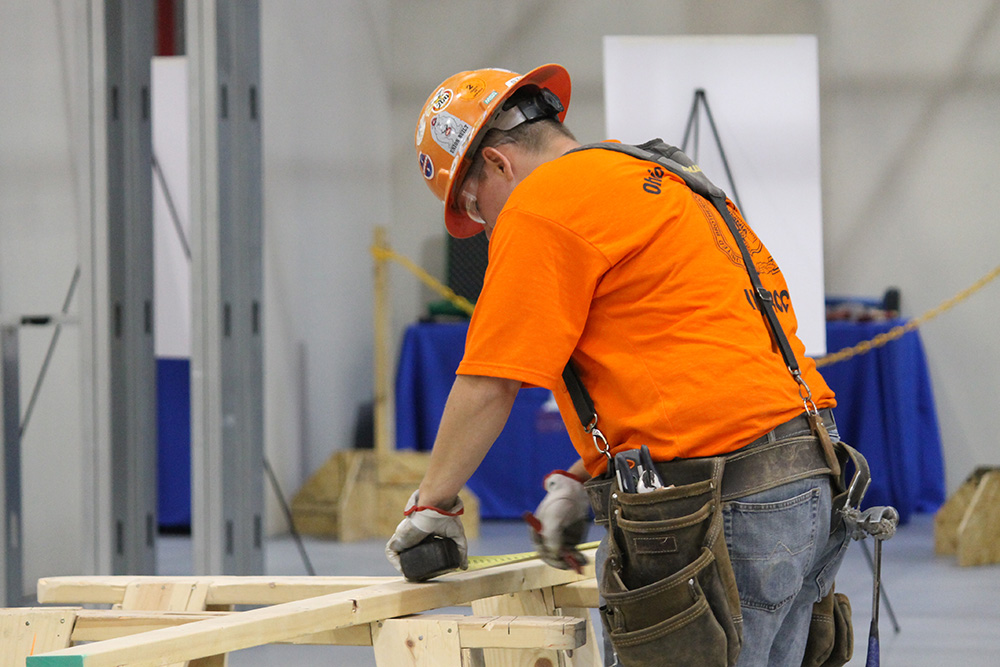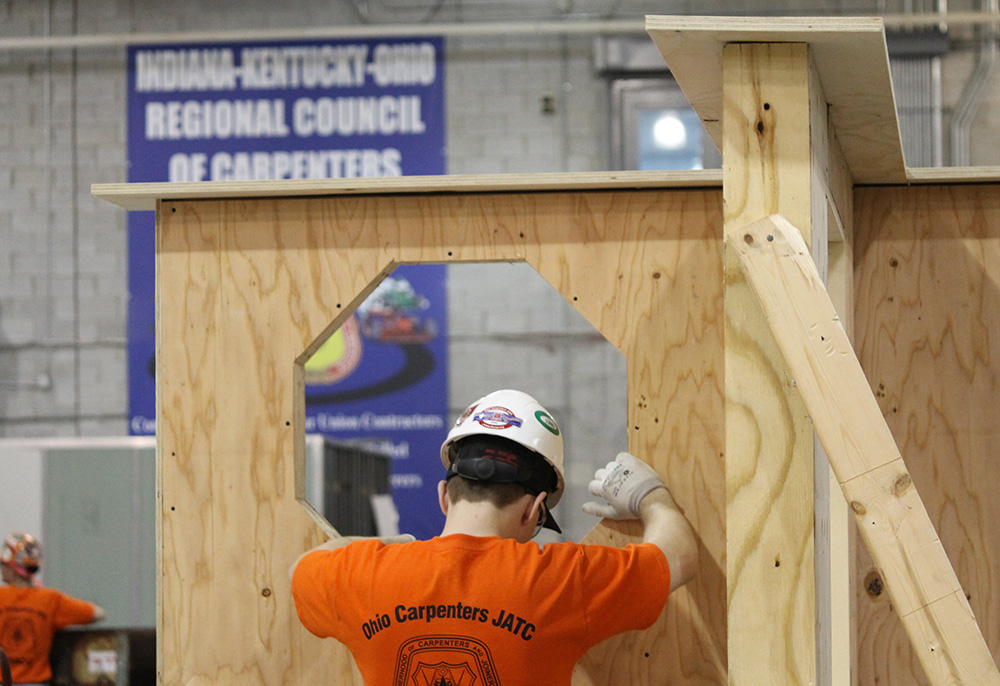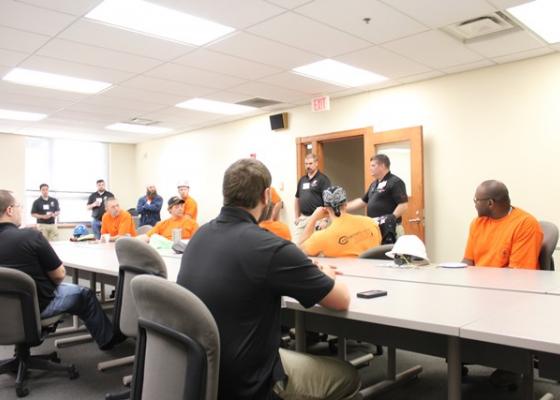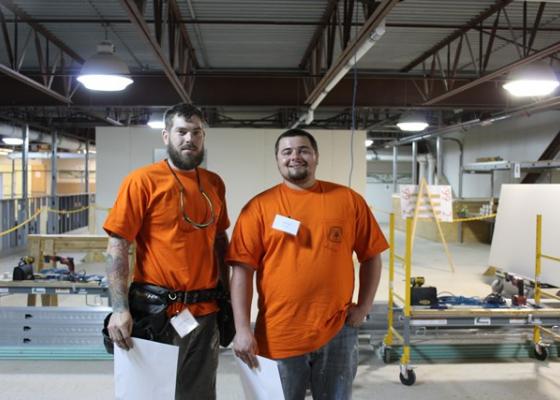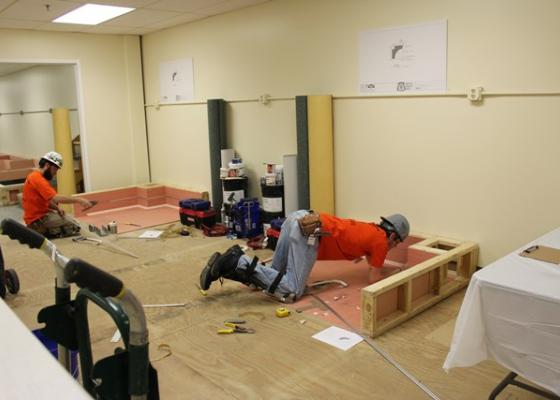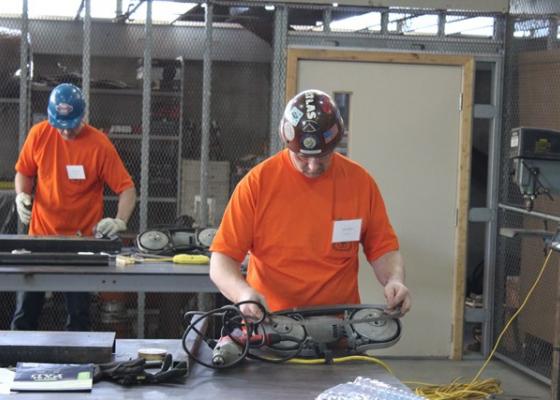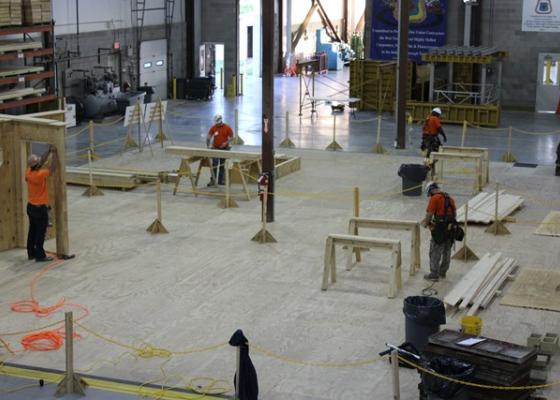Megan Walkowiak Receives Appreciation Award from Carpenters Local 435
The Indiana Kentucky Ohio Regional Council of Carpenters (IKORCC) selected Megan Walkowiak from Carpenters Local 435 to represent the Early Intervention Committee’s motto for, “Contractor, Community, Customer”, during the summer conference. She is a 3rd generation carpenter. Her grandfather, Benny Sroka (deceased), was an Honorary 65 year member, and her father, Dave Walkowiak, is a 39 year member. 
Like most young adults graduating high school, Megan had ambitions. She decided to pursue a bachelor’s degree in business management, with a minor in human resources. After entering the world of nine-to-five, she decided being behind a desk wasn’t for her. Instead, she wanted to pursue a career as a contractor. She approached her father about joining the carpenters union and he insisted she had to go through the apprenticeship program.
While going through her apprenticeship, Megan excelled and started to stand out as a leader. During the third year of her apprenticeship, Megan was chosen to go to the International Training Center (ITC) in Las Vegas, Nevada. Upon her return, she immediately applied the skills she learned from her training. Megan began to mentor other women in the trade and started giving back to the community. Megan stated that one of her favorite volunteer projects was reroofing a house for a needy family whose child had cerebral palsy. 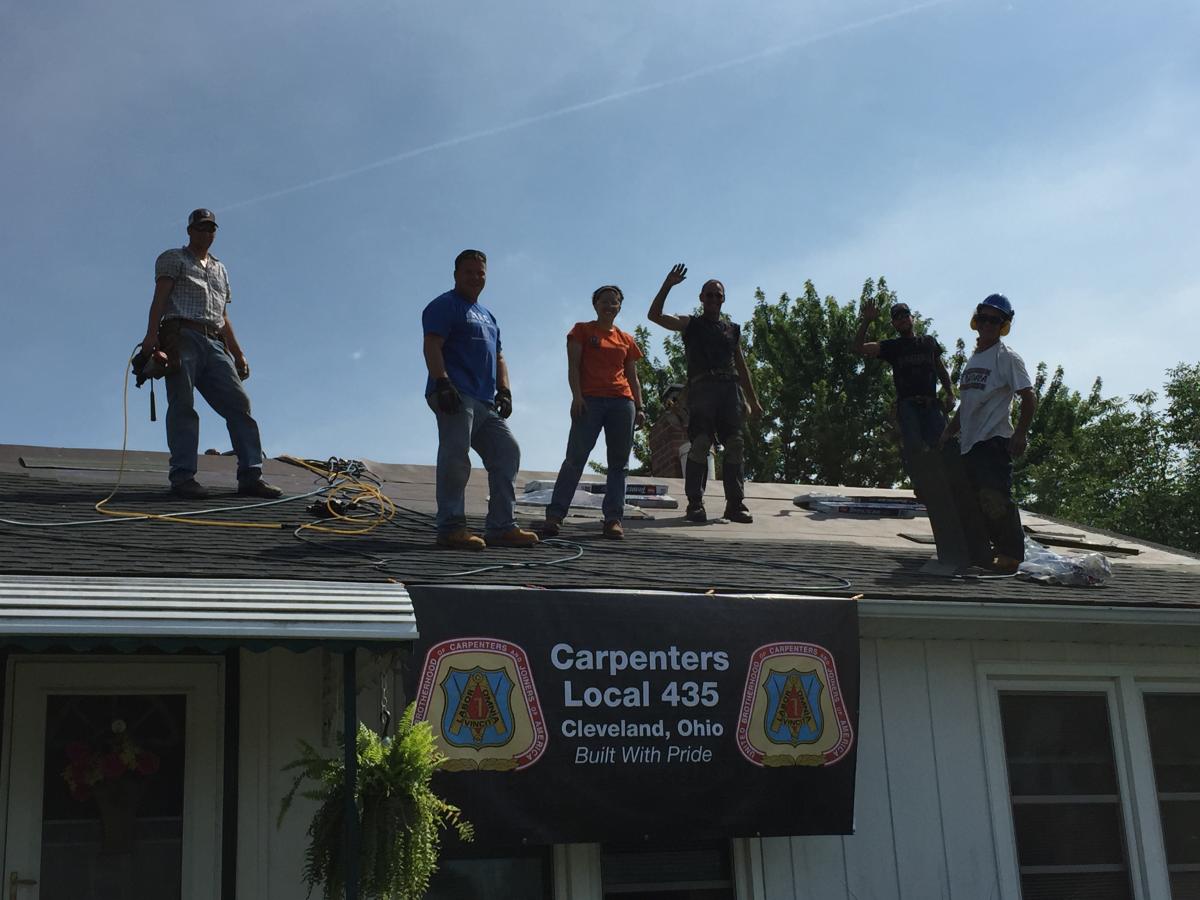
Megan was appointed as Chairperson for Locals’ 435 and 373 Sisters in the Brotherhood (S.I.B.) Committee, where she conducts monthly meetings and continually inspires women to excel with their contractors, community, and customers. Recently, Megan was awarded a plaque of appreciation for all the work she has done. The plaque was presented to her at the August 8, 2017, Carpenters Local 435 Union meeting. Her father, along with her UBC sisters from Carpenters Locals 435 and 373, were in attendance to witness her accepting the award. The award was presented to her by the officers of Carpenters Local 435, several IKORCC representatives, and a special appearance by Teresa Moore, the IKORCC S.I.B. chairperson.
It is an honor to have this young lady go from an apprentice, journeyman, to newly a signatory contractor for our organization. The IKORCC looks forward to seeing great things come from her in the future and wishes her the best in her career!





